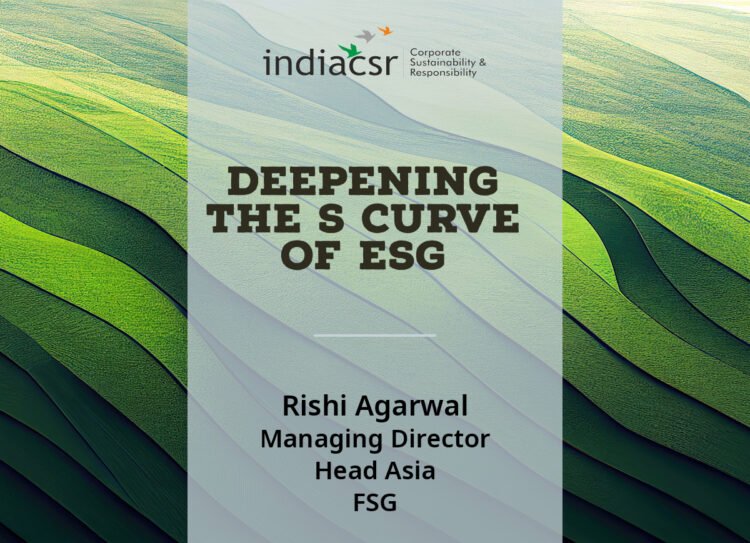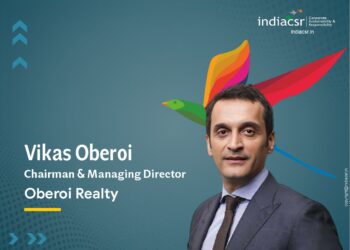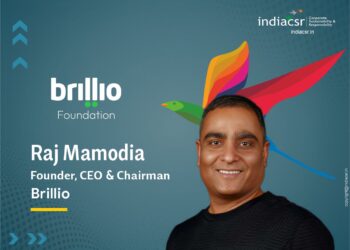By Rishi Agarwal
By all accounts, our rapidly warming world will be a more unequal world. Already, global poverty is up, gains made have been lost, extreme poverty rose in 2020 for the first time since the Nineties, and by some projections 7% of the world will be poor by 2030. One set of researchers at the IMF found in 2022 that greater climate vulnerability correlates to rising income inequality, and countries that struggle to mitigate the effects of climate change will witness wider disparities.
A seismic shift in the investments landscape will be par for the course as individuals and corporations look to align their financial objectives with environmental and social values. Some of this will be on account of the changing regulatory environment, some because the need to contribute to positive social change will become more pressing even, and meanwhile the business case will deepen for sustainability-led investments.
A mature ESG reporting regime would be critical as a yardstick for investors, and thus capable of driving growth. In a world of elevated human suffering, however, the ‘social’ aspect of companies’ performance will tend to draw more attention than it has just yet. If 2020-2022 were any indication, the intersection of economic uncertainty, the climate crisis and challenges to human welfare will be at the heart of the big questions of the 2030s and 2040s.
In the language of retail and institutional investors, this is translated as greater scrutiny on companies’ societal impact, labour standards, workforce diversity, healthcare benefits, pay equity, gender equity, human rights track record and more.
But it is not investor priorities alone that companies would seek to pay attention to. The best talent, whether because these companies will have the competitive edge and, therefore, better career prospects, or because of a matching set of values, will seek out workplaces that take the S of ESG seriously. The same will be true of consumers.
For corporate India, this means it will no longer be business as usual in recruiting, retaining talent, contracts, working conditions. This will also hold true for product quality, safety benchmarks, consumer relationships. In some ways, everybody will be looking to participate in a responsible capitalism that has a socialist soul.
This was already true when the world set out to tackle the Sustainable Development Goals. The Covid-19 pandemic, however, underscored several aspects of corporates’ performance on ‘social’ indicators, including the overnight retrenchments, hybrid working models, health insurance, customer relationships, etc, factors that drive millennials, who are the employees, investors and decision-makers of the future.
In 2021, Unilever’s former CEO Paul Polman said companies were starting to understand that less bad would not be good enough any more. He said, “… increasingly, companies are starting to understand that you need to be restorative, reparative, regenerative.” That will be applicable to social impact as much as to environmental impact.
The guidelines for SEBI’s May 2021 reporting requirements on ESG parameters, called the Business Responsibility and Sustainability Report, make some welcome points on diversity, grievance redressal systems, employee well-being including those in the value chain (paternity leave finds specific mention), promotion of human rights, and training for employees on human rights.
But how do you measure these, leave alone embed factors such as gender diversity or paternity leave into investors’ or companies’ strategies? What the United Nations Principles for Responsible Investment said in 2017 on social issues in ESG integration continues to ring true: The social element of ESG issues can be the most difficult for investors to assess, as social issues within a company are “inherently more qualitative”.
Compliance requirements like the SEBI’s present the S of ESG simply as a higher moral code. But in fact, the gamut of companies’ social relations and social initiatives with or for its consumers and staff will eventually impact revenues and profits. This will happen because investors and consumers will look proactively for companies whose social impact does not risk returns—those with stable labour relations, with a responsible approach to issues of occupational safety and hazards, those that build a reputation for housing and nurturing the best talent, or offer them personal development and growth. Also attractive will be entities that walk the talk on mental health, pay gaps, and those whose boards reflect real diversity and inclusiveness.
Admittedly, there is not enough clarity on a metric to measure these behaviours, though we have rich resources to tap into, should we set out to define these standards.
Since December 2017, the World Benchmarking Alliance, representing organisations (not companies) working at the global, regional or local level to shape the private sector’s contributions towards achieving the SDGs, has released an annual Corporate Human Rights Benchmark (CHRB) ranking top listed companies. By its fifth iteration in November 2022, the CHRB went beyond looking at companies’ commitments on processes and practices to ensure human rights, instead assessing their actual performance. For example, it considered any business requiring a recruitment fee as allowing a form of forced labour.
The CHRB’s precursor is the UN Guiding Principles Reporting Framework, the world’s first comprehensive primer for companies to report on how they respect human rights. It was launched in 2015 with early adopters belonging to sectors as varied as electronics and food & beverages.
Useful as they are, these and other reporting methods do not resolve the knotted problem of comparability and accurate, meaningful data for any company. For that, a standardised and objective metric will do wonders, one that may have to emerge from the regulators’ stables at least in India, focusing as much on how to measure/calculate the impact of companies’ ‘social’ relationships as on the nuts and bolts such as the frequency of reporting, etc.
For companies, a more insightful understanding of how the S within its ESG thrust sways stakeholders including employees, consumers and investors will be a building block towards ideal sustainability outcomes. There is regulatory compliance on one hand, of course. On the other, an improved social performance will be rewarded by investors even as companies go head-to-head with peers on building a stronger society.
In coming years, stakeholders will seek performance-based data to assess a company’s social performance, as will asset owners, institutional investors and others including, hopefully, public entities that also have investments to make.
About the Author
Rishi Agarwal, Managing Director – Head, Asia, FSG
Copy Right @ India CSR





















